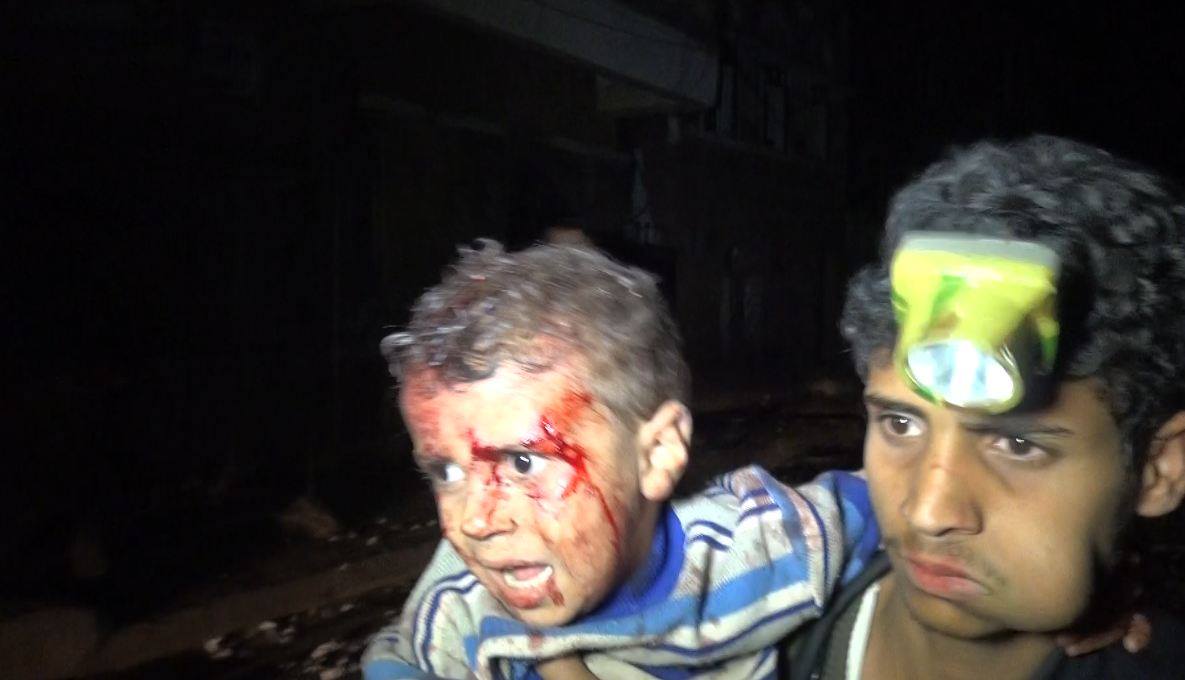Yemen Airstrikes and Blockade
On March 26, a Saudi Arabia-led coalition of states began a campaign of airstrikes against Houthi forces in Yemen and instituted a naval and aerial blockade. The airstrikes struck Houthi targets in the capital, Sanaa, and other cities, but also killed and injured many civilians. Between March and July nearly 2,112 civilians were killed in Yemen as a result of the armed conflict, most from coalition airstrikes.
Human Rights Watch investigated a number of Saudi-led airstrikes that appeared to be unlawful, including the bombing of a dairy factory in the port of Hodaida on March 31 that killed at least 31 civilians, attacks on civilian objects in the northern Houthi stronghold of Saada that killed dozens in April and May, and the bombing of two residential compounds in the Yemeni port city of Mokha that killed at least 65 civilians in July.
The coalition has used cluster munitions, banned by 117 states, in civilian-populated areas in Yemen, wounding and killing civilians.
The coalition-imposed blockade also had a severe impact on Yemen’s civilians. According to the United Nations, by September half the population faced food insecurity and 21 million Yemenis—a staggering 80 percent of the population—needed humanitarian assistance. More than 15.2 million people lacked access to basic health care, and over 20 million lacked access to safe water. With commercial imports accounting for 90 percent of Yemen’s food and fuel supplies, the coalition-imposed blockade may amount to starvation of civilians as a method of warfare, a war crime.
Key International Actors
The United States largely did not criticize Saudi human rights violations beyond Congressionally-mandated annual reports, but in January 2015 the State Department called on Saudi Arabic to cancel the “brutal punishment” imposed against Raif Badawi and to review his case and sentence.
The US provided logistics and intelligence support to Saudi-led coalition forces conducting airstrikes on Yemen, which may have included assistance with military targeting.
The January lashing of Raif Badawi provoked strong condemnation from some European Union countries. On February 12, the European Parliament adopted a resolution condemning corporal punishment, calling for the immediate release of Badawi and Waleed Abu al-Khair, and urging EU states to “reconsider their relationship with Saudi Arabia.” In October, the European Parliament awarded Raif Badawi the 2015 Sakharov Prize for Freedom of Thought.
In March, Saudi Arabia blocked Swedish Foreign Minister Margot Wallström from addressing the Arab League in response to her criticism of Saudi human rights abuses. The same month, Sweden canceled a defense cooperation agreement with Saudi Arabia.

